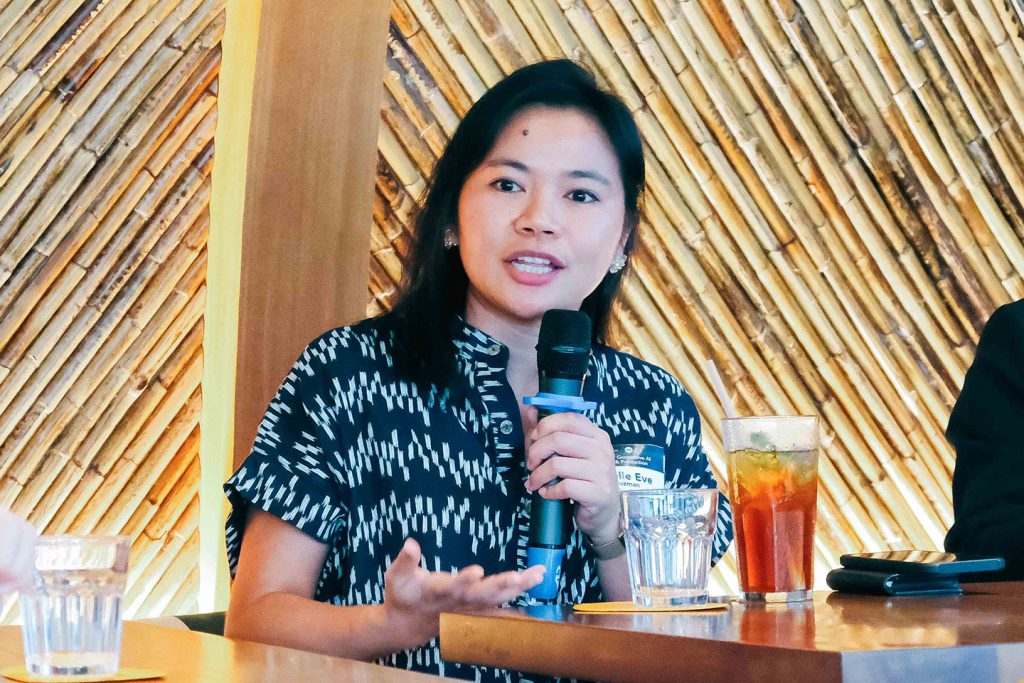MANILA, PHILIPPINES — Marketing leaders from Cebu Pacific Air, Cosmetique Asia Corporation, FWD, Globe, GoTyme, and L’oreal sat down for a lively chat on AI and its role in the creative economy at “The Power of Generative AI in Creativity and Production,” a roundtable discussion produced in partnership by global marketing consultancy R3 and adoboTalks. The event was held last October 19, 2023, at Auro Cafe, Bonifacio Global City, Taguig.











The discussion opened on how generative AI has overtaken the metaverse as the creative economy’s latest buzzword. Nearly 40% of marketing leaders are already piloting the technology’s use in campaign creation, according to R3. Among these uses are copywriting, script generation, generative commerce, and even video compositing.
With the rapid development of AI disrupting the marketing industry on a daily basis, brands have been adopting a similar pace to implement it in their processes. The “move fast and break things” mindset that some companies use in their approach, however, has led to cases where the use of AI without adequate human oversight has produced damaging results in the public eye. To underscore this, R3 highlighted a recent faux pas by Buzzfeed, wherein the publisher posted over a hundred AI-generated Barbie dolls representing different countries in the world, only to produce problematic imagery loaded with cultural inaccuracies, such as the “Vietnamese Barbie” wearing an outfit that incorrectly represented traditional Vietnamese garb.
A recurring theme throughout the discussion was the idea that marketers shouldn’t be adopting AI into their processes simply to follow trends; rather, the integration of AI must be a deliberate, meticulous process. It is imperative to have an overarching vision conceptualized before bringing the technology in to realize it, instead of the other way around.
The first step to AI integration, it was agreed, should be a thorough review of a brand’s internal marketing organization, external partnership ecosystem, and the relevant talent involved in both. This led to another key part of the conversation around AI: the issue of manpower.






AI’s efficiency has led many decision-makers to believe that the technology will eventually render much of their human workforce redundant, and some of the top global companies have already enacted massive layoffs as a result. There is also the belief that this will in effect lead to an overall decrease in the cost of human talent and output. It was decided, however, that this was not the case: while AI provides tools for creative efficiency, high-level output still heavily depends on the talent using it.
This implies that the cost to both acquire and organize these talents will actually rise, as a more level playing field—in terms of the capacity to create output—will invariably place irreplicable qualities like creativity and insight at a higher premium. Standout creative minds will be much more valuable to brands moving forward, as will individuals with a knack for creative oversight. In fact, there was a collective assertion that AI cannot replace human creativity and insight.
Brands, therefore, need to be proactive in ensuring inclusive and responsible use of AI in their marketing initiatives. As with any other software application, there needs to be careful consideration and scrutiny in the integration of AI in a company’s processes. Questions such as “What is the readiness of our marketing team to work with AI?” and “Does our agency model allow for a seamless, future-fit integration of AI?” must be asked well before implementation.
As the discussion came to a close, key marketing leads of some of the Philippines’ top companies garnered fresh new insights on their respective industries’ AI-powered futures. With roles constantly being redefined, evolving, and emerging, brands need to keep in mind that human creativity still sits at the center of their marketing efforts, and that AI adaptation at any stage must also account for human integration.










